Building a custom home is an exciting journey, but it is not without its challenges. Despite meticulous planning, various factors can cause delays, impacting the timeline and potentially the budget of your project. Understanding these potential obstacles can help you prepare and mitigate their effects. Here, we explore the most common causes of delays in custom home building projects and provide insights on how to manage them effectively. Find out here what can delay my custom home building project? For more assistance, talk to experts. Or work with experts through construction consulting services.
Weather Conditions
Weather is one of the most unpredictable factors that can delay a construction project. Inclement weather, such as heavy rain, snow, or extreme temperatures, can halt construction activities and affect timelines.
- Preparation Tip: Develop a flexible project schedule that accounts for potential weather-related delays. Regularly monitor weather forecasts and adjust plans accordingly to minimize downtime.
Permitting and Approvals
Securing the necessary permits and approvals from local authorities can be a time-consuming process. Delays often occur due to incomplete applications, changes in regulations, or a backlog at the permitting office.
- Preparation Tip: Start the permitting process early and ensure that all documentation is complete and accurate. Working with a knowledgeable contractor or project manager can help navigate local regulations and expedite approvals.
Design Changes
Design changes requested by the homeowner can lead to significant delays. Even minor alterations can require adjustments to the plans, reordering of materials, and rescheduling of labor.
- Preparation Tip: Finalize your design as much as possible before construction begins. If changes are necessary, communicate them promptly and clearly to your contractor to minimize disruptions.
Supply Chain Issues
Delays in the delivery of materials and supplies can halt progress on your custom home. Supply chain disruptions can be caused by various factors, including manufacturing delays, shipping issues, or shortages of specific materials.
- Preparation Tip: Work with your contractor to source materials early and consider ordering long-lead items well in advance. Have backup suppliers identified in case of unexpected shortages.
Labor Shortages
The construction industry often faces labor shortages, especially in areas with high demand for skilled workers. A lack of available labor can slow down progress and extend project timelines.
- Preparation Tip: Choose a reputable contractor with a reliable network of subcontractors. Discuss labor availability during the planning phase and schedule work during periods of higher labor availability if possible.
Unforeseen Site Conditions
Unexpected issues with the building site, such as poor soil quality, hidden rock formations, or underground utilities, can cause delays and increase costs.
- Preparation Tip: Conduct a thorough site assessment before construction begins. Engage geotechnical experts and surveyors to identify and address potential issues early in the planning process.
Financing and Budget Constraints
Delays in securing financing or budget constraints can slow down or halt a custom home project. Changes in financial circumstances or unexpected costs can further complicate matters.
- Preparation Tip: Secure financing well in advance and ensure you have a clear understanding of the budget. Maintain a contingency fund to cover unexpected expenses and avoid disruptions.
Contractor and Subcontractor Issues
Delays can occur if your contractor or subcontractors are overbooked, face internal issues, or fail to meet deadlines.
- Preparation Tip: Choose a reliable and experienced contractor with a track record of completing projects on time. Regularly communicate with your contractor to stay informed about progress and any potential issues.
Inspection and Compliance Delays
Construction projects must pass various inspections to ensure compliance with building codes and regulations. Scheduling and passing these inspections can sometimes cause delays.
- Preparation Tip: Plan for inspections in your project timeline and ensure that work meets code requirements to avoid failing inspections. Maintain good communication with local inspectors to facilitate smooth scheduling.
Communication Breakdowns
Poor communication between the homeowner, contractor, and other stakeholders can lead to misunderstandings, errors, and delays.
- Preparation Tip: Establish clear lines of communication from the outset. Regularly schedule meetings and updates to ensure everyone is aligned and informed about the project’s progress and any potential issues.
Mitigation Strategies
While it is impossible to anticipate and prevent every delay, proactive measures can help manage and minimize their impact. Key strategies include:
- Detailed Planning: Develop a comprehensive project plan that includes contingencies for potential delays.
- Regular Monitoring: Continuously monitor project progress and adjust schedules as needed to address emerging issues.
- Flexibility: Be prepared to adapt to changes and challenges, maintaining flexibility in your timeline and expectations.
- Professional Guidance: Engage experienced professionals, including contractors, project managers, and consultants, to provide expertise and support throughout the project.
Building a custom home is a complex and multifaceted process that can be affected by numerous factors beyond your control. By understanding the common causes of delays and implementing proactive strategies, you can better navigate these challenges and keep your project on track. Effective planning, communication, and flexibility are essential to managing delays and ensuring the successful completion of your custom home. That’s what can delay my custom home building project? For more assistance, talk to experts. Or work with experts through construction consulting services.


